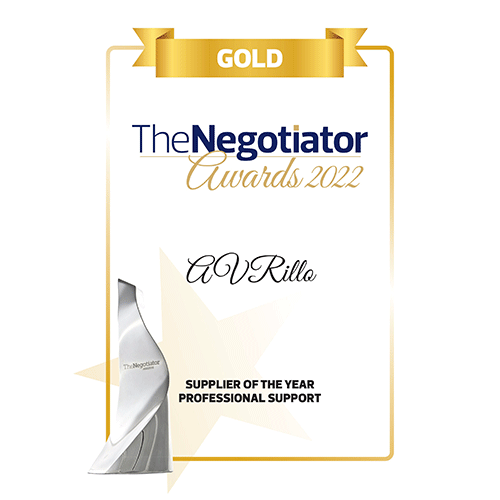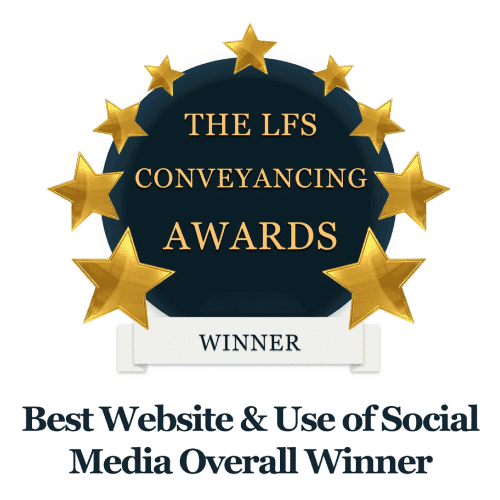

and start saving money now
and start saving money now
Get a FREE Conveyancing Quote
Conveyancing Lawyer in Pudsey, West Yorkshire
You need a reputable conveyancing firm like AVRillo to help you through the conveyancing process. We have been helping clients with their conveyancing needs since 2013, so we know what works best when buying or selling your house. Our team is friendly and professional, and they always put our customers first.
Why You Should Choose AVRillo Conveyancing in Pudsey, West Yorkshire
 ExperienceOur team has been practicing law for many years. They have worked hard to build up their expertise and knowledge to provide you with the best service possible.
ExperienceOur team has been practicing law for many years. They have worked hard to build up their expertise and knowledge to provide you with the best service possible. We are AffordableAVRillo conveyancing offers an affordable price structure. Our fees are based on what the market will bear. However, if there are complications, such as going to court, we will increase our hourly rate accordingly.
We are AffordableAVRillo conveyancing offers an affordable price structure. Our fees are based on what the market will bear. However, if there are complications, such as going to court, we will increase our hourly rate accordingly. EfficiencyYou don't need to wait around for long periods when dealing with us. We do not waste your time by dragging things out unnecessarily. We work quickly and efficiently, so you won't wait too long before receiving your documents.
EfficiencyYou don't need to wait around for long periods when dealing with us. We do not waste your time by dragging things out unnecessarily. We work quickly and efficiently, so you won't wait too long before receiving your documents. ReliabilityYour documents will always reach you in good condition. We use high-quality paper and envelopes, so everything gets delivered safely. We also make sure that all your information is kept private. Never share your details with anyone else.
ReliabilityYour documents will always reach you in good condition. We use high-quality paper and envelopes, so everything gets delivered safely. We also make sure that all your information is kept private. Never share your details with anyone else. We are Licensed PractitionersAll of our staff members are fully qualified and licensed to practice law. In addition, we follow strict guidelines set down by the Solicitors Regulation Authority and the Bar Council. These rules ensure that we only represent clients fairly and ethically.
We are Licensed PractitionersAll of our staff members are fully qualified and licensed to practice law. In addition, we follow strict guidelines set down by the Solicitors Regulation Authority and the Bar Council. These rules ensure that we only represent clients fairly and ethically. We are FriendlyWhen you choose us to handle your case, you will feel comfortable knowing that you work with professionals who care about you and your situation. We want you to succeed, and we will do whatever it takes to achieve this goal.
We are FriendlyWhen you choose us to handle your case, you will feel comfortable knowing that you work with professionals who care about you and your situation. We want you to succeed, and we will do whatever it takes to achieve this goal. We Are Accredited Members of the Association of Residential ConveyancersWe are accredited members of the Association of Residential Conveyancers. This means that we abide by specific standards and requirements. For example, we must maintain accurate records of your case. We also must keep these records safe from theft or damage.
We Are Accredited Members of the Association of Residential ConveyancersWe are accredited members of the Association of Residential Conveyancers. This means that we abide by specific standards and requirements. For example, we must maintain accurate records of your case. We also must keep these records safe from theft or damage. We Are InsuredAs professional solicitors, we take insurance cover for ourselves and our staff. This ensures that we can pay compensation in the event of a dispute arising.
We Are InsuredAs professional solicitors, we take insurance cover for ourselves and our staff. This ensures that we can pay compensation in the event of a dispute arising.
Recent Reviews
Conveyancing Lawyer in Pudsey, West Yorkshire- FAQs
What Is Conveyancing?
A conveyancing lawyer deals with the transfer of property. It involves buying or selling a house, getting a mortgage, or finding out how much money you owe on loan.
How Does Conveyancing Work?
The first step in any transaction is to register the ownership of the property being sold. Once this is done, the title deeds are sent to the buyer. The buyer then pays the seller either in cash or using a bank cheque. After receiving
Can One Lawyer Represent a Buyer and Seller?
Yes, but it is usually more cost-effective to have two separate lawyers acting for the buyer and seller.
Which Steps Should I Take When Buying A House?
If you want to acquire a new home, you should contact a local estate agent to determine which properties are available. You may also want to speak to a lender to see if you qualify for a mortgage.
Do I Need To Get A Mortgage Before Selling My Home?
No, you do not need to get a mortgage before selling your home. However, if you want to sell your home quickly, you may be able to borrow some money.
Should I Hire An Estate Agent?
It depends on what type of property you are looking at. If you are looking at an apartment block, you might consider hiring an estate agent. They will arrange viewings and help you negotiate the best price.
The Estate Agent has Asked for a "Preliminary Deposit." Should I Pay for it and How Much?
It would be best if you asked the estate agent what they mean when they say they require a “preliminary deposit.” Some agents request a deposit as a guarantee that you will buy their property. Others want to know if you intend to purchase the property. Either way, you should check whether there is anything written into the contract about paying a deposit.
When do I Pay the Agent's Fees?
Most agents charge an upfront fee called a commission. This is paid when you make an offer to buy the property. The amount charged varies depending on the size of the property.
Will My Agent Receive a Cut of the Sale Price?
In most cases, no. Your agent receives a commission only if you buy the property. If you decide not to buy the property, your agent does not get paid.
How Much Will I Pay In Stamp Duty?
Stamp duty is a tax levied on buyers who buy a property worth over £125,000. It is payable at 5% of the total value of the property. This applies to both houses and flats.
Is There a Difference Between Buying To Let And Rent To Own?
Rent to own is where you rent a property and then repurchase it after three years. There is a minimum period of one year between renting and owning.
Are There Any Other Fees That May Be Charged?
Some sellers will add additional charges such as legal fees and survey costs. These are often included in the sales agreement.
Is It Better To Sell Directly From The Seller Or Through An Auctioneer?
This depends on the type of property you are buying. For example, auctioneers can charge higher prices than directly from the seller. However, if you are purchasing a large number of items, an auctioneer could save you time and money.
Is There a Way to Deal with Council Tax and Water Rates?
Council tax payments must be made directly to the relevant authority. Water bills are sent by post, and you should keep them until the end of the billing cycle.
Can I Return The Property To The Seller Once I Complete Buying?
Yes, you have a right to return the property within seven days of moving in. If you wish to return the property, you should notify the seller in writing.
Can I Refinance My Loan After Moving Into My New Property?
Yes, you can refinance your loan. However, this process can take up to six months. It would be best if you discussed this with your lender.
Refinancing property loans is a great way to reduce interest payments. You may also be able to use the equity in your home to borrow more money.
I Want To Move Out Of My Current Home Before Selling. Can I Do This?
If you own the home, you can move out before selling. Otherwise, it would help if you gave 30 days’ notice to your landlord. However, if you don’t own the home and plan to move out before selling, you need to inform your current landlord. Otherwise, you risk being evicted!
Should I Get A Mortgage On My New House?
A mortgage is usually required when purchasing a house. However, this is not always necessary. You should speak to your bank or building society about this. If you have enough money to finance the purchase yourself, you won’t need a mortgage.
Where Should I Look For Help With Buying A House?
You should look for help from family members, friends, and estate agents. They can provide advice on what properties are available, how much they cost, and whether they are suitable for you. Remember that buying a new home is exciting, but it can also be stressful.
Should I Use A Real Estate Agent When Buying A Flat?
Real estate agents are not allowed to sell properties unless they are acting under a license. They cannot represent themselves as qualified to advise people about their rights and responsibilities when buying a flat.
What Is A Purchase Agreement, And What Does It Cover?
A purchase agreement is a legally binding contract between two parties. It outlines the terms and conditions of the sale of a property. It includes information on the price, the deposit amount, completion date, and the payment plan.
I Have A Mortgage On My House. How Can I Get Rid Of It?
There are two ways to get rid of your mortgage: either pay off the debt entirely or transfer the ownership of the house to someone else. If you want to share the right of your home, you will need to apply for a deed of variation. This allows you to change the name on the title deeds without going through the legal process of transferring the ownership of the house.
What Are The Different Types Of Mortgages Available?
There are two main types of mortgages: fixed-rate and variable rate. Fixed-rate mortgages offer a set monthly repayment. Variable-rate mortgages offer an initial fixed-rate period followed by a variable rate.
How Much Will I Pay Off My Mortgage In Ten Years?
The average UK homeowner pays around £1,500 per month towards their mortgage. However, this varies depending on where you live. Some areas are cheaper than others.
Should I Provide Proof of Identification When Buying or Selling?
Some lenders require you to provide them with a copy of your passport or driving license. This is done so that they know who you are.
Can I Buy A Home Without Having To Provide Proof Of Identity?
Yes. Most banks allow you to buy a home without providing any proof of identity. However, there are certain exceptions. For example, if you already own another home, you may be unable to take out a loan on top of your existing one.
Do I Need An Offer Letter Before Making An Offer On A Property?
No. There is no requirement for you to send a formal letter offering to buy a property. However, it is advisable to do so. This shows that you are serious about making an offer and have considered all aspects of the property.
What Happens After I Make An Offer?
Once you make an offer, the seller will contact you to discuss the details of the deal. They will then give you a written acceptance of your submission. Once you receive this, you can proceed with the final stages of the transaction.
When do I Get The Deeds to My Property?
You should expect to receive the deeds within ten working days after receiving the acceptance from the seller.
Should I Be Worried About The Seller's Agent?
It is usual for the agent to ask for a fee before selling a property. You should not worry too much about this. Agents usually charge a percentage of the total sales value.
Is It Possible To Sell My House Through A Real Estate Agency?
Yes. Many real estate agencies operate online. They also offer services such as finding properties for clients.
Will I Have To Give Up Ownership When Selling My House?
If you sell your house privately, you will retain full ownership of the property. However, if you use a real estate agency, you will lose property ownership when you sign the documents.
What Is The Difference Between A Deed Of Variation And A Transfer Of Title Deeds?
A deed of variation is used to change the name on a title deed. It does not affect the ownership of the property. A transfer of title deeds is used to transfer ownership of the property.
Can I Change The Name On My Title Deeds?
Yes. Changing the name on title deeds is called a deed of variation. It is possible to do this yourself or through a lawyer.
How Do I Get Rid Of A Lien Against My Property?
This depends on what type of lien you have against your property. If you have a mortgage, you need to speak to your lender first. They will tell you how to remove the lien.
- 24 / 7 Online Tracking
- Call Surgery
- Online Payment
- Quote App
- Our Team & Careers
- Conveyancing Today
- Get in touch
- Cheap conveyancing solicitors
- Online conveyancing quote
- Find a conveyancing solicitor
- Solicitors for house buying
- Residential Conveyancing
- Property Conveyancing
- Solicitor Costs For Buying a House
- House Conveyancing
- Conveyancing Guide
- Conveyancing Solicitor
- Residential Solicitors
- Conveyancing




















